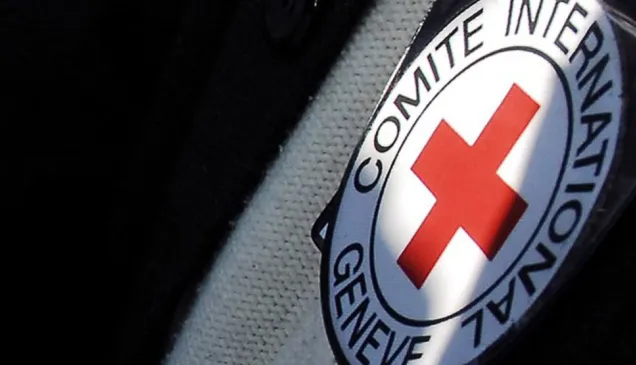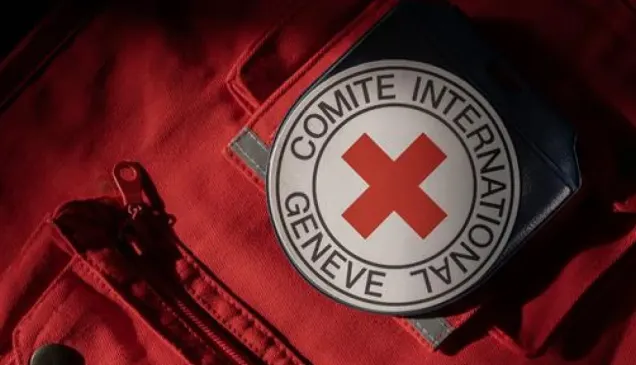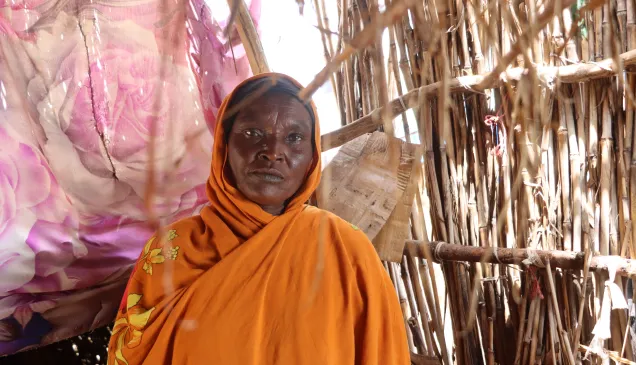Debate on the Protection of Civilians in Armed Conflict, Statement to the UN Security Council, New York, Speech given by Ms Christine Beerli, vice-president of the ICRC.
The tragedies I've seen so far in my career have left deep scars within me. Unlike many of my patients, my scars are invisible. Twenty years into my career, I muster up the courage to say, 'it does not have to be this way'.
Dr Marco Baldan, ICRC war surgeon
Thank you for inviting the ICRC to address the Council at this important debate.
It’s a particular pleasure to speak alongside the new Secretary General as he presents his first report on this subject. The ICRC greatly appreciates the strategic focus and energy that the Secretary General brings to the critical questions of how to prevent and alleviate the suffering of civilians in armed conflicts.
My statement today focuses on three areas: the strategy in the Secretary General’s report; the progress on Resolution 2286; and our particular concern for a group who are often invisible – missing persons and their families.
The Secretary General's report
Hayat. Ahmed. Samia. These are the names of some of the children that ICRC hospitals treated recently. Our doctors helped to fit them with prosthetic aids when their limbs were blown off during attacks. Hayat was just three years old when an airstrike destroyed her house, killing her sister, and leaving her severely injured. As we meet today, I ask you to remember their names and the cruel hand dealt to them in the early years of their lives.
At the ICRC we see the daily realities of what happens when civilian populations are not protected during conflict and other situations of violence. There are millions of people living in desperate and terrifying places, and there is no matter more urgent than their protection.
The Secretary General stresses this urgency in his report, saying that the world today faces “a protection crisis of the highest order” because of armed conflicts.
ICRC endorses the three priorities of protection in the report and supports the call to focus on the particular challenges of urban warfare.
The return of armed conflict to towns and cities has been a particular concern of the ICRC in recent years. Some 50 million people in urban areas now bear the brunt of conflict.
The overwhelming percentage of people killed or injured by explosive weapons in populated areas are civilians. They are mothers and fathers and children who are not part of the fight and simply wish to lead their lives, not fear for them.
ICRC advocates that all parties should avoid using explosive weapons which have a wide impact area in populated places. In addition to the high risk of indiscriminate civilian death and injury, heavy explosive weapons can cause extensive damage to critical infrastructure, such as health care, water and electricity.
Critically, under IHL, civilians must not only be protected from attack and the impact of conflict but also be able to go about their daily lives. But we see too often the fabric of communities is eroded: kids cannot attend school, the sick cannot reach hospitals and livelihoods are interrupted or cease entirely. When people live in fear and cannot safely continue their activities, they risk becoming marginalised, destitute and reliant on humanitarian aid.
Returning to the report, we warmly welcome the Secretary General’s priority of prevention, as an important part of his office and the mandate of this Council.
We agree that “strengthening respect for international law is a prerequisite for halting the brutal violations that are driving endless cycles of violence”.
We urge the Council to continue to demand and encourage respect for IHL as the most immediate form of prevention. Preventing violations can instantly protect civilians on the ground and strengthen peace building in the longer term.
The Secretary General’s report correctly aligns respect for international law with good practice by parties to the conflict, especially in military partnerships.
Today’s armed conflicts are increasingly fought in alliances and coalitions which develop “partnered operations”. These partnerships may involve States training, equipping and advising other States or Non-State Armed Groups in armed conflicts.
We urge the Council to remind all parties to armed conflict that Common Article One of the Geneva Conventions requires them “to respect and ensure respect” for the Conventions in all circumstances.
Good practice is equally important in States’ counter-terrorism activities amounting to armed conflict. The violations committed by the enemy must not result in the lowering of standards by States, which are still obliged to respect IHL. The law is vital and can help parties find practical solutions to humanitarian problems.
In this fortieth anniversary year of the Additional Protocols to the Geneva Conventions, the ICRC urges all States to recognize the positive impact which these particular rules make on the conduct of hostilities, and to reaffirm their very practical relevance to today’s armed conflicts.
Resolution 2286
Turning to Resolution 2286, the Secretary General’s report clearly shows how attacks, obstructions and threats against health care remain extremely high one year on.
We are not only seeing health workers killed or threatened, hospitals destroyed, and ambulances obstructed, but entire public health systems collapse. Communities are exposed to revivals of epidemics, compounding already existing humanitarian catastrophes, and causing long-term setbacks in public health and development. It happens in many places, but most recently in Yemen we have seen a deadly cholera outbreak which has taken the lives of hundreds of people just in the past few weeks.
Much more needs to be done to stop violence against health care, which is carried out by States as well as non-State Armed Groups.
Several States have made progress in improving their domestic legislation to protect healthcare and enhance their military policy and rules of engagement. Other States are developing diplomatic networks to build increasing support for Resolution 2286.
Further action in two areas will make a practical difference:
First – States need to gather data about why attacks happen.
Attacks can be direct. But they can also be the result of inadequate precautions to identify the location of facilities or insufficient appreciation of the humanitarian consequences of military operations. They also result from an ignorance about the rules applying to health care or inadequate training.
If there is better understanding about why attacks happen, then authorities can take steps to stop them.
Second – States must focus much more on the behaviour and attitudes of weapons bearers, on respecting IHL, and on increasing accountability for those that carry out attacks against health care. We need more organized exchanges on best practices to improve the passive protection of facilities and patients, and on changing knowledge, attitudes and behaviour in weapons bearers.
There is an urgent need to implement the recommendations made by the UN Secretary-General and by others, including the Red Cross Red Crescent Movement Health Care in Danger Initiative.
Debates like this can play a part, as well as States reporting on their efforts voluntarily on implementation of Resolution 2286. But to influence behaviour on the ground, the work needs also continue at national and regional levels.
We urge all parties to armed conflicts to issue specific military procedures so that health care systems are protected from attacks, threats and other violence. And that those supporting other parties to armed conflicts exert maximum influence to ensure their allies do the same.
Missing persons and their families
Finally, Mr President, the ICRC was very pleased to see mention in the report of the plight of missing persons and their families.
This humanitarian challenge has been overlooked in the global humanitarian agenda for too long. Right now we are seeing a new spike in the numbers of missing persons in armed conflicts. Last year tens of thousands of families experienced the profound pain of not knowing the fate of their loved ones.
Whether the person is unaccounted for after an attack, abducted, or as a result of displacement, or their body was buried in haste, their families are left waiting. It remains an open wound, which can last a lifetime.
Under IHL parties to the conflict must both prevent people from going missing; as well as clarify the fate of those who do.
We urge the Council to encourage all States and parties to conflict to take early action to uphold families' right to know the fate of their missing relatives as provided by IHL, and support their emotional, legal, social and economic needs.
I also call on parties to conflict to take all possible measures to ensure the dignified and adequate management of the dead without adverse distinction, and endeavour to facilitate the return of their remains to the families.
Finally, I encourage parties to collaborate with the International Committee of the Red Cross and its Central Tracing Agency, as a neutral, independent and impartial intermediary.
The ICRC is grateful for this opportunity to reflect on this important report with the Council, and stands ready to assist States in their efforts to increase the protection of the civilian population in armed conflicts.
When we meet again in a year’s time, we hope the Secretary General can report favourably on three points:
- One, there has been fewer armed conflicts
- Two, improvements have been made in reducing the humanitarian consequences of military operations and to improve the protection of health care – especially in urban areas and in partnered operations.
- Three, measures are in place to increase early action and support for missing persons and their families.
I’d like to finish with the words of Dr Marco Baldan, an ICRC war surgeon who has worked in conflicts across the world.
“As I stand in the emergency theatre, operating on patients riddled by bullets or torn apart by explosions, I wish a handful of lead politicians in war-torn countries could join me. Would their decisions be different if faced, on a day-to-day basis with the human cost of war- in its most raw manifestation?
“The tragedies I’ve seen so far in my career have left deep scars within me. Unlike many of my patients, my scars are invisible. Twenty years into my career, I muster up the courage to say, ‘it does not have to be this way’.”
Dr Baldan is right. It doesn’t have to be this way. The people in the room today have the power to make change. To ensure civilians are protected from the worst impacts of war and violence.



